
Gibran Khalil Gibran, usually referred to in English as Kahlil Gibran, was a Lebanese-American writer, poet and visual artist; he was also considered a philosopher, although he himself rejected the title. He is best known as the author of The Prophet, which was first published in the United States in 1923 and has since become one of the best-selling books of all time, having been translated into more than 100 languages.

Kamal Suleiman Salibi was a Lebanese historian, professor of history at the American University of Beirut (AUB) and the founding Director of the Royal Institute for Inter-Faith Studies in Amman, Jordan. He was a lifetime bachelor, who devoted his life to books.
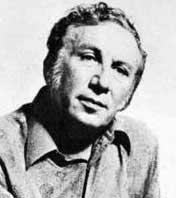
Nizar Tawfiq Qabbani was a Syrian diplomat, poet, writer and publisher. He is considered to be Syria's National Poet. His poetic style combines simplicity and elegance in exploring themes of love, eroticism, religion, and Arab empowerment against foreign imperialism and local dictators. Qabbani is one of the most revered contemporary poets in the Arab world.

Butrus al-Bustani was a writer and scholar from present day Lebanon. He was a major figure in the Nahda, which began in Egypt in the late 19th century and spread to the Middle East.

Baba ghanoush, also spelled baba ganoush or baba ghanouj, is a Levantine appetizer consisting of finely chopped roasted eggplant, olive oil, lemon juice, various seasonings, and tahini. The eggplant is traditionally baked or broiled over an open flame before peeling, so that the pulp is soft and has a smoky taste. It is a typical meze ('starter') of the regional cuisine, often served as a side to a main meal and as a dip for pita bread.

Elias Khoury is a Lebanese novelist and public intellectual. His novels and literary criticism have been translated into several languages. In 2000, he won the Prize of Palestine for his book Gate of the Sun, and he won the Al Owais Award for fiction writing in 2007. Khoury has also written three plays and two screenplays.
Eli Smith was an American Protestant missionary and scholar. He graduated from Yale College in 1821 and from Andover Theological Seminary in 1826. He worked in Malta until 1829, then in company with H. G. O. Dwight traveled through Armenia and Georgia to Persia. They published their observations, Missionary Researches in Armenia, in 1833 in two volumes. Eli Smith settled in Beirut in 1833.
The Armenians in Lebanon are Lebanese citizens of Armenian descent. There has been an Armenian presence in Lebanon for centuries. According to Minority Rights Group International, there are 156,000 Armenians in Lebanon, around 4% of the population. Prior to the Lebanese Civil War, the number was higher, but the community lost a portion of its population to emigration. After surviving the Armenian genocide, and initially settling in shanty towns in Lebanon, the Armenian population gradually grew and expanded until Beirut became a center of Armenian culture. The Armenians became one of Lebanon’s most prominent and productive communities.
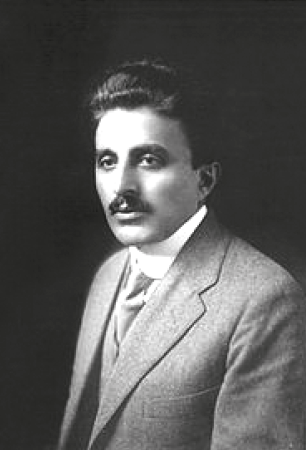
Ameen Rihani (Amīn Fāris Anṭūn ar-Rīḥānī), was a Lebanese American writer, intellectual and political activist. He was also a major figure in the mahjar literary movement developed by Arab emigrants in North America, and an early theorist of Arab nationalism. He became an American citizen in 1901.

Bourj Hammoud is a town and municipality in Lebanon located north-east of the capital Beirut, in the Matn District, and is part of Greater Beirut. The town is heavily populated by Armenians.

Zaven Kouyoumdjian is a Lebanese talk show host, producer and television personality of both Armenian and Arab descent. He is also a media researcher and author of four books, including Lebanon's best-seller Lebanon Shot Twice. in 2021, Zaven joined The Munathara Initiative as the host of their Lebanese version of Townhall, a show that brings together key national broadcasters to commit to public interest journalism. Simultaneously, Zaven hosts and produces the morning show of Sawt Kel Lebnan radio station and DRI’s online talk show, Nafas Jdeed.
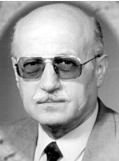
Kevork Vartani Ajemian (Adjemian) was a prominent Lebanese-Armenian writer, journalist, novelist, theorist and public activist, and long-time publisher of the Beirut-based literary, artistic and general publication Spurk. Ajemian was a co-founder of the Armenian Secret Army for the Liberation of Armenia (ASALA) military organization.
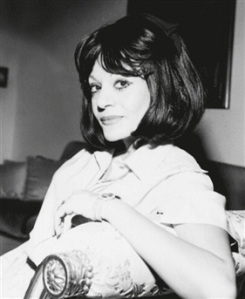
Ghadah Al-Samman is a Syrian writer, journalist and novelist born in Damascus in 1942 to a prominent and conservative Damascene family. Her father was Ahmed Al-Samman, a president of the Syrian University. She is distantly related to poet Nizar Qabbani, and was deeply influenced by him after her mother died at a very young age.123
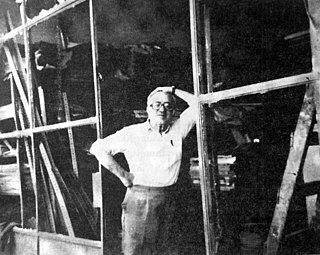
Simon Simonian was an Armenian intellectual who founded the literary and social Armenian periodical Spurk.

The Armenian Revolutionary Federation, also known simply as Tashnag, is an Armenian political party active in Lebanon since the 1920s as an official political party in the country after having started with small student cells in the late 1890s and early 20th century.
Theatre in Lebanon has its origin in passion plays. The musical plays of Maroun Naccache from the mid-1800s are considered the birth of modern Arab theatre. Some scholars, such as Abdulatif Shararah, have divided Lebanese theatre into three historical phases centered on 1) translations of European plays, 2) Arab nationalism, and 3) realism.
Lebanon is not only a regional center of media production but also one of the most liberal and free in the Middle East. Despite its small population and geographic size, Lebanon plays an influential role in the production of information in the Middle East and is "at the core of a regional media network with global implications".
Tawfiq Yusuf 'Awwad was a Lebanese writer and diplomat. His 1939 novel al-Raghif, inspired by Arab resistance to the Turks in World War I, "was quickly recognized as a landmark in the literary expression of Arab nationalism." His only other novel, Tawahin Beirut, was similarly well-regarded. 'Awwad also wrote poetry, essays, and plays. He was killed in a bombing in 1989 during the Lebanese Civil War.

Perchuhi Partizpanyan-Barseghyan was an Armenian pedagog, writer and humanitarian worker. She was one of the first three women elected to serve as a member of the parliament with the formation of the First Republic of Armenia in 1919. After the fall of the republic, she briefly relocated to Bulgaria, before continuing her literary career in Paris. She received recognition for her short stories from the American anthologist, Edward J. O'Brien. She worked in the Nansen International Office for Refugees in Paris trying to assist Armenians who had been effected by the Armenian genocide.
Dalal Khalil Safadi was a Lebanese writer and translator. Considered a pioneer in the short story genre among Middle Eastern women, she was the first woman to publish a short story collection in Iraq.